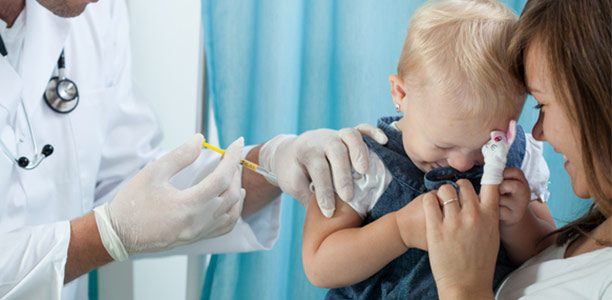First-time mums are more hesitant and undecided about childhood vaccinations compared to mothers with children and only two thirds of all mothers believe they receive enough information on vaccines during pregnancy.
In a new study published in Vaccine by researchers at the Murdoch Children’s Research Institute, nearly half of mothers pregnant with their first child had concerns about childhood vaccinations and less than three quarters had made a decision about childhood vaccinations.
This is the first study in Australia to confirm that first-time mothers are more vaccine hesitant and undecided about childhood vaccination than mothers with children. More than 975 patients from The Royal Women’s, Sandringham Hospital and two public hospitals in Adelaide and Perth were involved in the study. Just 73% had made a decision on vaccinating their child prior to delivery. This was compared to mothers who already had children where nearly 90% said they had decided on vaccinations.
Only two thirds of all mothers believe they receive enough information during pregnancy. A disturbing 6% of first time mothers reported that they had not heard about vaccinations at all.
Lead author Dr Margie Danchin said that most importantly this study gives evidence that new interventions to improve both education and communication on childhood and maternal vaccines should be delivered by midwives and obstetricians in the Australian public hospital system.
“Trusted healthcare providers such as GPs, midwives and obstetricians play a very important role in discussing vaccination. It’s important to have this discussion early. This would help to reduce vaccine hesitancy for all mothers in pregnancy and post-delivery, particularly for first-time mothers, as pregnancy is a key vaccine decision-making time point, ” Dr Danchin said.
The study aimed to ascertain whether vaccine information is received in pregnancy and post-delivery, mothers’ attitudes and concerns regarding childhood vaccination and maternal immunisation uptake. It also aimed to determine any correlation between the uptake of childhood vaccines and;
- intentions and concerns regarding childhood vaccination during pregnancy
- socioeconomic status (SES)
- concerns regarding pregnancy vaccination
- uptake of maternal influenza and pertussis vaccines during pregnancy
Currently there is no mandated time point in Australia to discuss childhood vaccination with expectant parents, although many antenatal providers discuss Hepatitis B vaccine at birth.
Midwives in public hospitals, private and public obstetricians and GPs are encouraged to recommend and facilitate pertussis and flu vaccination in pregnancy. However, ensuring uptake of these vaccines is challenging. The study found that only 46% and 82% of mothers reported receiving pregnancy influenza and pertussis vaccines respectively, confirming that uptake of vaccines in pregnancy is an ongoing challenge.
There are no data available in Australia to determine whether vaccine concerns of expectant mothers, particularly first-time mothers, correlate with childhood and maternal vaccine uptake. The study found that the degree of vaccine hesitancy and belief that childhood vaccines are safe during pregnancy correlated with vaccine uptake post-delivery, allowing interventions in pregnancy to be tailored to these specific concerns.
“It is very clear that new interventions are needed to improve vaccine uptake and that they also need to sustain vaccine confidence in the longer term for parents. Successful interventions are likely to have multiple components, including making sure the vaccines are easily accessible, and include communication strategies. Information on vaccine alone is not enough,” Dr Danchin said.
(Source: Murdoch Children’s Research Institute, Vaccine)










